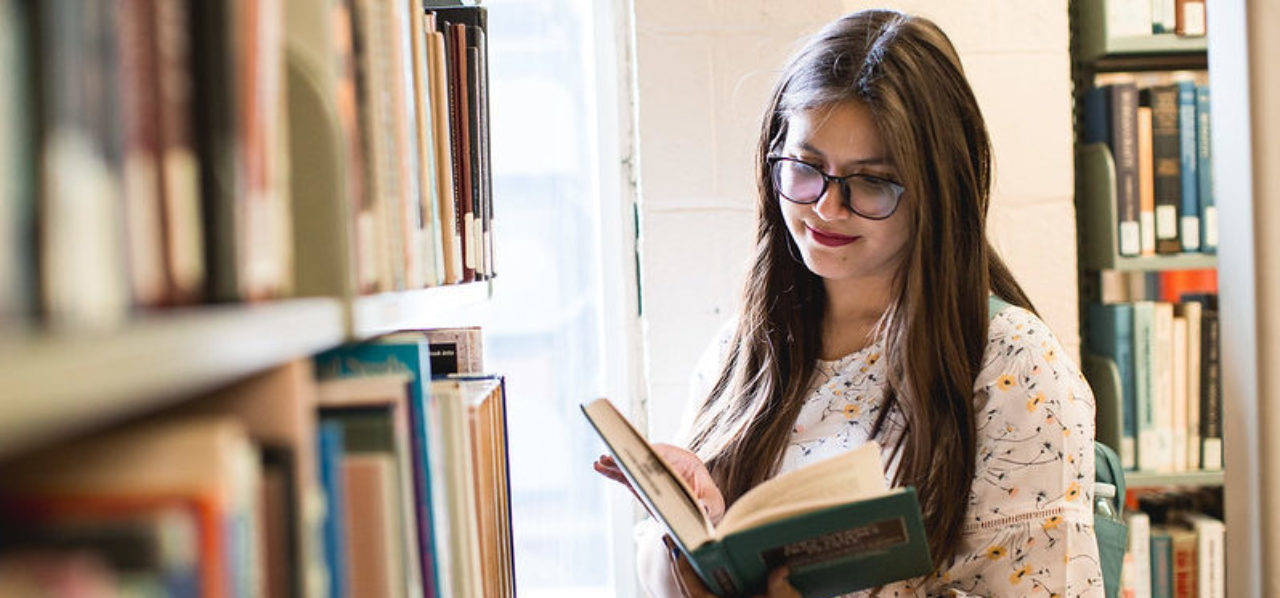Literature BA

Admissions Planning Message
This program is not open for new enrollment. For more information see this announcement. Students may wish to consider the major in Humanities. You may also wish to browse through the program finder.
Perhaps the most important skills that the study of literature teaches are analytic and synthetic skills. In learning to read carefully and analytically, we learn to ask hard questions both of the work and of ourselves. And as we seek to discover the relationships between the ideas and images we uncover in a work, our ultimate goal is to see the whole — to see how the parts work together to make the piece what it is. In grappling with the complex and difficult ideas contained in literature, we learn to accept the multiple dimensions and ambiguity that are so often present in life.
Finally, the study of literature will also help develop our writing abilities as we come to value the written word and understand its power to communicate.
Program Learning Outcomes
At the conclusion of this program, graduates will be able to:
- Identify and describe formal, rhetorical, and aesthetic features of
texts, and apply this understanding through “close reading” and cognate forms of
literary reading. - Produce engaging writing with the formal features and academic
rigor expected in the field of literary studies. (“Formal features” include thesis,
documentation of sources, discipline-specific terminology, evidence of sufficient
revision and editing with an academic audience in mind. “Academic rigor” includes
judicious selection of appropriate primary and/or secondary sources, explication of
source material.) - situate texts in space and time; analyze texts and authors in a way
that demonstrates understanding of how they function in historical, social, cultural,
political, philosophical, and other relevant contexts (including reception history,
movements, times, and genres), and an ethically aware engagement with issues of
human and nonhuman diversity. - Demonstrate advanced writing skills, sustained argument, and use of appropriate literary sources.
Degree Plan
NOTE: All students are required to complete the General Education Requirements of their campus in fulfillment of their Bachelor degree requirements.
Qualified students may complete part of their undergraduate degree requirements at Wroxton College in England.
Required Major Courses (18 credits)
Choose 1 from each pair below, plus one additional (4 courses total)
- LITS2101 British & European Literature I
- LITS2102 British & European Literature II
- LITS2201 World Literature I
- LITS2202 World Literature II
- LITS2301 American Literature I
- LITS2302 American Literature II
Elective courses (21 credits)
At most, one 1000-level course can be counted here. HUMN or LANG courses may be appropriate to substitute with permission.
Minor is optional. Additional 15 credits of free electives will need to be taken in lieu of a minor.
QUEST/MAT Options
- BA, Literature/Quest/Preschool-Grade 3
- BA, Literature/Quest/Elementary Education
- BA, Literature/Quest/Secondary Education
- BA, Literature/Quest/Preschool-Grade 3 – TSD
- BA, Literature/Quest/Secondary Education – TSD
- BA, Literature/Quest/Elementary Special Education
- BA, Literature/Quest/English as a Second Language
- BA, Literature/Quest/Elementary Education/ESL
- BA, Literature/Quest/Secondary Education/ESL
The Degree Plan for QUEST is the same as above, except that instead of 21 credits of literature electives, the requirement is 15 credits of electives, plus:
- LITS 3311 Children’s Literature (for Elementary Education) or one course on Shakespeare (for Secondary Education)
- LITS 2030 English Grammar, or LITS 2031 The English Language
Careers
Chances are, if you are an Literature major or if you have thought of becoming one, you’ve been asked, “So you want to teach?” While it is true that some Literature majors do end up becoming teachers and professors, the English degree is dynamic. By honing their communicative, creative, critical, and expressive skills, Literature majors are well-suited to pursue a wide variety of careers not just in the classroom, but also in business, politics, creative arts, and even sciences.